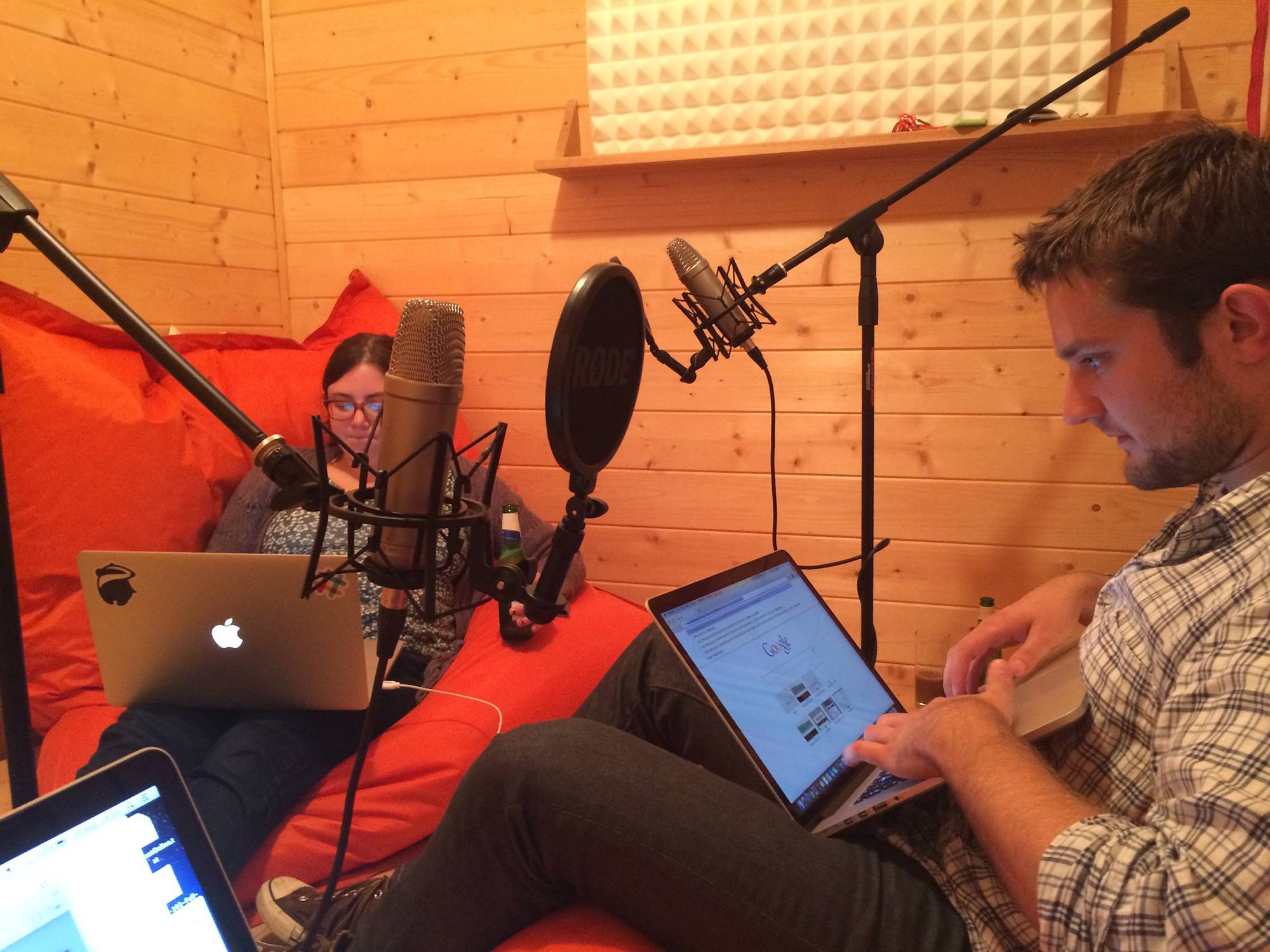Radio Badger anniversary

It’s been a whole year now since me, Roisi and Robbie started a podcast titled Red Badger Don’t Care. Since then 21 episode of our show was recorded, edited and released into the world. It is something none of us done before, but I think we all loved listening to other podcasts and dreamed about one day making our own.
I’m going to put a randomly organised list of thoughts on what I learned during this year of making.
- The most important thing is that everyone is having fun in process. Recording and editing must be a reward in itself. And almost always it is.
- Listeners count is heavily dependent on the topic of a given episode. This seems to be the case also for seasoned podcasts like Tim Ferris show. It also depends how well given episode is advertised. Nothing new here.
- iTunes is the platform for podcasts. It is horrible, clunky, but everyone are stuck with it. It will not host your episodes - instead you have to provide iTunes compatible RSS feed with links to your mp3 files, hosted on your server.
- It’s great having guests on the show. After 10 episodes with the same hosts you get into certain template of doing things. Templating is great, but you need unexpected things happening in order to maintain energy and fun.
- This is a bit opinionated, but I believe it’s ok having podcasts going over 1 hour as long as content is good. Listeners are free to stop listening at any point, or skip things. That’s what I do. You are not under obligation to finish listening every single episode of what you’re subscribed to.
- Having guests over Skype requires careful planning and good internet channel. It will also require good editing skills for the post production.
- GarageBand is ok for recording multichannel audio. It is horrible however for editing actual podcast. I’m using Audition, and mostly happy with it. For good mp3 packing there is no better tool than Lame.
- In many ways hosting podcasting can have therapeutical effect. You’re talking about topics you truly care about, with clever co-hosts who will help you advance this topic. In the age of Twitter when every conversation on a given topic usually lasts few seconds, podcast gives you unique opportunity for a proper conversation.
- Usually we spend 2 hours on recording and then I spend about 4 hours more on editing and posting.
- There’s plenty of Creative Commons music on SoundCloud which you can use in your episodes and not break any copyrights. They have handy filters to find fresh good stuff.
- There is a secret to having fun while editing podcast - have a week of cool down between recording and editing. This will inevitably make some topics less relevant.
- It’s important to learn how to shut up while other person talking
- 3 hosts is the most optimal number for a show. It’s a good idea however to have extra hosts to rotate and swap if someone won’t make to recording.
- Personal cardioid mics significantly increase sound quality
- Always monitor while recording. Like, with headphones. On one occasion an old ongoing issue with MacOS destroyed a whole episode of recording. Waveform looked fine, no overloads or any other visual sign of heavy noise, which was there all the time.
- Most of your friends will not listen to your podcast. That’s ok. I think my mom would listen, but she doesn’t speak English.
- Cursing is ok. Topics on religion and politics should be avoided in general.
- Hosting a podcast is a great start for public talking. It’s ok to fail and try multiple times, since everything will be edited later. You can even come completely unprepared and still have a part in conversation.
- This will change the way you listen to other podcasts.
For the next episode we’re going to try livecasting. Tune in this Tuesday evening.